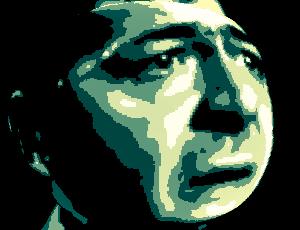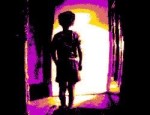Biography: life and films

Reggiani's first substantial film roles were in Louis Daquin's Le Voyageur de la Toussaint (1943) and Léo Joannon's Le Carrefour des enfants perdus (1944). It was on the latter film that he met the woman who was to become his first wife, the actress Janine Darcey. The film that established Reggiani as an actor was Marcel Carné's Les Portes de la nuit (1946), followed by a memorable turn in Henri-Georges Clouzot's Manon (1949). In these early film roles, Reggiani was often cast as the spineless villain, the archetypal adolescent hoodlum or self-interested spiv. André Cayatte allowed him to widen his repertoire by giving him the romantic male lead in Les Amants de Vérone (1949), playing Romeo to Anouk Aimée's Juliet. In 1948, Reggiani became a naturalised French citizen.
In Max Ophüls's La Ronde (1950), Reggiani appeared for the first time alongside Simone Signoret, who would become a close personal friend and who would star with him in his most celebrated screen role, that of the ill-fated Manda in Jacques Becker's Casque d'or (1952). This was the highpoint of Reggiani's film career. Relegated to mostly supporting roles in France for the rest of the 1950s, he began appearing in films in his native Italy, without achieving the success he hoped for. Despite having a noteworthy role in Jean-Pierre Melville's Le Doulos (1962), his screen career continued to flounder in the 1960s, and this was not helped by the cancellation of Henri-Georges Clouzot's L'Enfer (1964), in which he was to have starred alongside rising star Romy Schneider.
It was in the mid-1960s that Serge Reggiani began his second career, as a singer. With hits such as Sarah and Le Barbier de Belleville, Reggiani soon became one of the most popular musicians in France, although he wasn't yet ready to give up his first love, acting. Claude Sautet gave him a made-to-measure role in Vincent, François, Paul... et les autres (1974), which helped to galvanise his film career in the 1970s. Claude Lelouch cast him in two of his films around this time, first opposite Michèle Morgan in the crime-comedy Le Chat et la souris (1975) and then as a resistance chief in the wartime drama Le Bon et les méchants (1976). In the late 1970s, he appeared on stage, in plays directed by his son Stéphan and daughter Carine.
The suicide of his son Stéphan in 1980 came as terrible blow and Reggiani, afflicted by depression and alcoholism, began making fewer film appearances. In the twilight of his career, he turned in some magnificent supporting performances, in such films as Theodoros Angelopoulos's The Beekeeper (1986), Leos Carax's Mauvais sang (1986) and Aki Kaurismäki's I Hired a Contract Killer (1990). In 1992, he appeared in an auto-biographical film directed by his second son, Simon: De force avec d'autres (1992). Meanwhile, Reggiani continued recording records and giving concerts to packed houses. He also took up painting with considerable enthusiasm and frequently exhibited his work. In 2003, he received a Victoire d'honneur and Order of Merit for his life's work. Serge Reggiani died in Paris from a heart attack on 23rd July 2004, aged 82. He now lies in Montparnasse cemetery, alongside his parents and son Stéphan.
© James Travers 2013
The above content is owned by frenchfilms.org and must not be copied.
Filmography
Click here to view complete list of films...The very best sci-fi movies

Kafka's tortuous trial of love

The very best American film comedies
